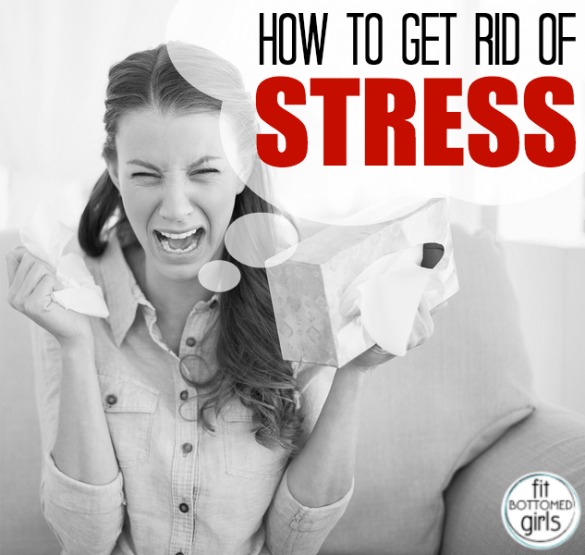Does Stress Make You Fat?
 As an avid pioneer of straight-up answers to our craziest body phenomenons, I research and test diet- and health-related myths and questions for the curious and frustrated fit bottomed gal on a regular basis. Through a whole lot of research and real-life experiments with my clients, I uncover the truth and get the answers we all deserve. After all, knowledge is power, baby, and there is nothing sexier than a smart and confident woman !
As an avid pioneer of straight-up answers to our craziest body phenomenons, I research and test diet- and health-related myths and questions for the curious and frustrated fit bottomed gal on a regular basis. Through a whole lot of research and real-life experiments with my clients, I uncover the truth and get the answers we all deserve. After all, knowledge is power, baby, and there is nothing sexier than a smart and confident woman !
Today we will answer one of the most common health questions I hear asked: Does stress make you fat?
The answer in a nutshell? YES!
When we stress out, our body has a physiological approach and a reaction to handling what the mind is dishing out—it’s called cortisol. Cortisol is a steroid hormone released by the outer part (cortex) of the adrenal glands. Cortisol levels are elevated in response to stress, with large amounts released into the blood stream when you are under high amounts of stress. Because stress can cause us to act out and consume an excess of high-calorie foods (cortisol has been linked to increasing appetite), weight gain follows. Excess cortisol also can cause your metabolism to slow down. So even if you are not overeating, you still can gain weight, with cortisol signaling your body to store fat in the abdomen. (We all know that’s not healthy!)
Women who eat high-fat diets have been shown to have both increased cortisol reactivity and greater preference for sweet foods, according to researchers at the University of California at San Francisco. The important thing to do to prevent excess cortisol and weight gain is to reduce or even eliminate stress. There are a few ways to do this.
The Real Deal on Stress and Fat
1. Join a support group. There is power in numbers, so be sure to talk to others about your stress and how you can resolve it. Consider joining a meeting group like Weight Watchers a weight-loss challenge or try life or wellness coaching.
2. Eat the right foods. Foods higher in protein and lower in sugar balance hormone levels and lower cortisol levels, which helps stave off stress-induced cravings.
3. Exercise regularly. Exercise helps you lose weight and reduce stress. Cardio is one of the best ways to burn calories and stress. Walking, running, swimming and biking are a few forms of cardio that are actually fun. Doing this for at least 20 minutes a day can be great for your body, help burn off stress, boost your metabolism, lower your cortisol levels and burn off excess weight. Exercise also increases mood-stimulating neurotransmitters in your brain. Ever noticed how it’s hard to be stressed and happy?
4. Get a good amount of sleep. Exercising also can help you sleep better. Sleep deprivation can be a major stressor, which is not good for your cortisol levels. The National Sleep Foundation recommends that healthy adults get seven to nine hours of sleep a night.
Stress is a part of life, but it shouldn’t be running your life (or your body)! So let’s battle this “pudge-making hormone” with a good support team, proper nutrition, sleep and regular workouts! —Jessica
